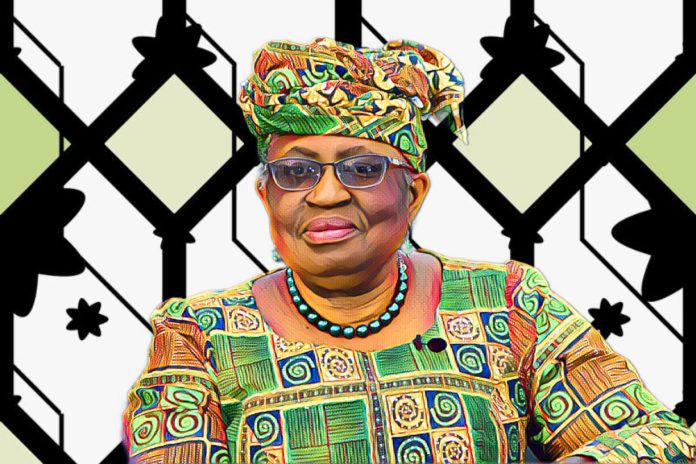KEY POINTS
- Nigeria can lead Africa’s trade by cutting logistics costs.
- AfCFTA success depends on value addition and infrastructure.
- WTO highlights fisheries pact as proof of progress.
Nigeria has the capacity to lead Africa’s new era of trade, but only if it tackles high logistics costs, strengthens payments systems, and builds value-added industries, according to World Trade Organisation Director-General Ngozi Okonjo-Iweala.
Speaking on the sidelines of the WTO Public Forum in Geneva, she urged Nigeria and other African economies to accelerate the African Continental Free Trade Area (AfCFTA) and invest in infrastructure that can unlock billions in manufacturing, services, and digital trade.
Nigeria can lead Africa’s trade transformation
Okonjo-Iweala noted that intra-African trade still accounts for just 15–20 percent of commerce on the continent, far below the European Union’s 60 percent . “We need to speed up implementation so Africans trade more with each other,” she said.
She pointed to Lesotho, which exports $200 million worth of textiles annually to the U.S., nearly 10 percent of its GDP, while Africa still imports $7 billion in similar goods. “Why not absorb Lesotho’s products within Africa?” she asked.
To shift the balance, she said Nigeria must reduce trade costs, expand connectivity, and strengthen regional payment systems being developed by Afreximbank and others. “It shouldn’t take longer to ship goods from Cape Town to Lagos than from China to Lagos,” she added.
WTO chief urges value addition and diversification
The WTO chief stressed that Nigeria and its peers must diversify beyond raw materials and tap into critical minerals, energy, services, and digital trade. “With new supply chains and opportunities in digital trade, there’s huge potential if we invest in connectivity and implementation,” she said.
She also warned against Africa falling behind in artificial intelligence and other developing technologies, promising WTO support to help countries handle these opportunities.
Multilateral trade success shows room for optimism
Okonjo-Iweala said pessimistic narratives around global trade risk overshadowing recent achievements. She highlighted the landmark Fisheries Subsidies Agreement, which recently entered into force after eight years of negotiations.
“This isn’t about now, it’s about future generations,” she said. “If the organisation can deliver something that will leave a legacy for the young, that excites me.”
The agreement, which curbs harmful subsidies and aims to protect global marine resources, shows multilateral institutions can still deliver, she said, calling on African governments not to lose sight of positive momentum.



